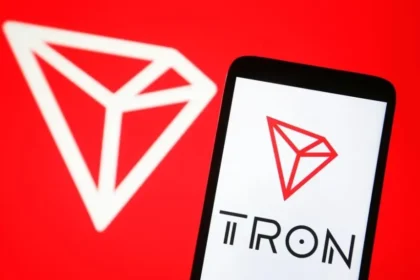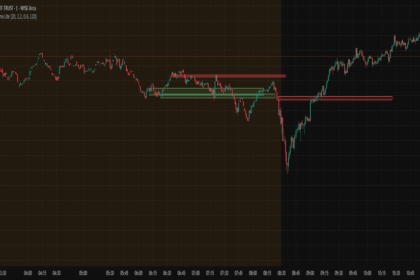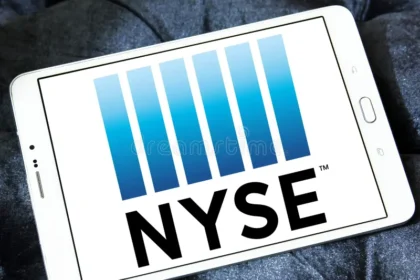In a significant development for one of Germany’s most iconic industrial giants, Thyssenkrupp has extended the contract of CEO Miguel López, giving him a clear mandate to accelerate the company’s ongoing turnaround strategy. The decision, announced by the supervisory board, underscores investor and boardroom confidence in López’s leadership and the trajectory of his restructuring agenda — an agenda that seeks to modernize and stabilize a company that has long grappled with profitability, structural complexity, and global competition.
Thyssenkrupp, a company with over 200 years of industrial history, has been facing financial and strategic turbulence for more than a decade. Once a symbol of German engineering might and a stalwart of the country’s heavy industry, Thyssenkrupp has in recent years struggled to define its identity amid declining steel margins, failed mergers, rising debt, and a rapidly transforming global manufacturing landscape. López’s reappointment signals a new chapter — one focused on bold action, sharper focus, and leaner operations.
The Background: A Company at the Crossroads
Headquartered in Essen, Germany, Thyssenkrupp is a conglomerate whose business interests span steel production, submarine construction, industrial components, automotive systems, and materials trading. Once a core pillar of Germany’s industrial economy, the company has seen its influence wane due to a combination of market shifts, internal inefficiencies, and failed restructuring efforts.
After years of losses and internal turmoil, including multiple CEO changes, the firm was forced to sell off its crown jewel — the profitable elevator business — in 2020, raising €17.2 billion in a bid to stabilize its balance sheet. Despite this, profitability remained elusive, and calls for deeper restructuring intensified.
When Miguel López took the reins in mid-2023, expectations were high. A seasoned executive with a background in engineering and finance, López previously served as CFO of Siemens Gamesa and brought with him a track record of turning around struggling industrial firms. In his first year at Thyssenkrupp, he outlined a more aggressive turnaround plan focused on streamlining operations, spinning off underperforming units, and investing in innovation and decarbonization.
The Contract Renewal: A Strategic Signal
The decision to renew López’s contract ahead of schedule, extending his tenure through 2028, sends a strong signal from the board: they want stability, continuity, and decisive leadership. In a statement accompanying the announcement, Thyssenkrupp’s supervisory board chairman stated that López had “delivered credible and decisive steps” in his first year and that the company was “on a better footing to move forward.”
Among his achievements so far, López has:
- Accelerated the restructuring of the Steel Europe division, pushing ahead with plans to decarbonize production and prepare it for partial sale or separation.
- Advanced the spin-off of marine systems, particularly submarine manufacturing, into a more independent structure that could eventually go public or form joint ventures.
- Pushed for digital transformation across industrial solutions segments, improving supply chain efficiency and data-driven maintenance systems.
- Cut overhead costs and restructured administrative units, leading to significant savings and better alignment between business units.
The contract renewal grants López both the time and political capital to implement deeper reforms — reforms that were often delayed or diluted under previous leadership due to boardroom resistance or short CEO tenures.
Steel at the Heart of the Storm
One of the most complex pieces of the Thyssenkrupp puzzle remains its legacy steel division. Steel Europe, once the company’s pride, has turned into a liability amid falling demand, global overcapacity, and high emissions. Steelmaking is a high-emission industry, and EU climate regulations are tightening, forcing producers to invest in cleaner technologies such as hydrogen-based direct reduction.
López has made decarbonization a cornerstone of his steel strategy, securing public subsidies for green steel projects and courting partners for potential co-investment. However, long-term viability remains uncertain unless the division can become competitive on both cost and carbon footprint.
He has also revived discussions around spinning off or selling Steel Europe, potentially to partners in the energy or raw materials sectors. Though politically sensitive — due to the steel division’s cultural and employment significance in Germany’s Ruhr region — López appears committed to confronting the issue head-on.
Navigating the Global Landscape
López’s strategy must also grapple with macroeconomic headwinds. Global industrial demand has weakened due to geopolitical tensions, rising interest rates, and sluggish economic growth in key markets like China. At the same time, energy prices remain volatile, and competition from more agile global players — particularly from Asia — continues to erode margins in several of Thyssenkrupp’s core segments.
López’s response has been to double down on niches where the company still has competitive strength, such as:
- Submarine and naval systems, where geopolitical instability is driving demand from NATO-aligned countries.
- Industrial components, especially in heavy machinery and automotive drive technologies.
- Green hydrogen infrastructure, leveraging Thyssenkrupp’s legacy in chemical engineering to supply electrolysis systems for renewable energy integration.
By aligning the company’s portfolio with macro trends — climate tech, defense readiness, and automation — López hopes to future-proof the conglomerate and restore investor confidence.
Cultural and Organizational Reforms
Another critical aspect of López’s mandate is internal transformation. Thyssenkrupp has long been criticized for being bloated, slow to innovate, and hindered by complex layers of management. López has begun to flatten the organization, digitize decision-making, and promote a more entrepreneurial culture.
A new talent recruitment strategy is also underway, aimed at attracting younger engineers and tech-savvy professionals who can bring fresh thinking to legacy business models. The emphasis is on cross-disciplinary teams, lean project management, and faster time-to-market for new products.
López has also opened the door to external partnerships, venture capital-style investments, and collaborative research with universities — a departure from the company’s traditionally inward-facing innovation strategy.
Investor and Market Reaction
Markets have responded cautiously but positively to López’s leadership. Thyssenkrupp’s stock has seen modest gains over the past year, though it remains well below historic highs. Analysts see the CEO’s contract renewal as a necessary step to give the company the time and strategic clarity it needs for a genuine turnaround.
Some institutional investors have praised the clarity of his vision, while others remain skeptical of the pace of change, particularly given Thyssenkrupp’s long history of failed restructurings. Still, most agree that López represents the strongest leadership the company has had in years — and his continued presence offers a degree of stability that has long been missing.
Conclusion: A Crucial Mandate for a Legacy Company
The renewal of Miguel López’s contract as CEO of Thyssenkrupp is not merely an HR decision — it is a strategic commitment to long-term transformation. His appointment signals the company’s willingness to confront difficult truths about its structure, streamline its operations, and reposition itself in an industrial world that is undergoing rapid technological and geopolitical shifts.
While many challenges lie ahead, from green steel competitiveness to global supply chain pressures, López now has both the authority and the runway to enact meaningful change. Thyssenkrupp’s turnaround story is far from complete, but under his continued leadership, the path forward appears more focused and determined than it has in years.










